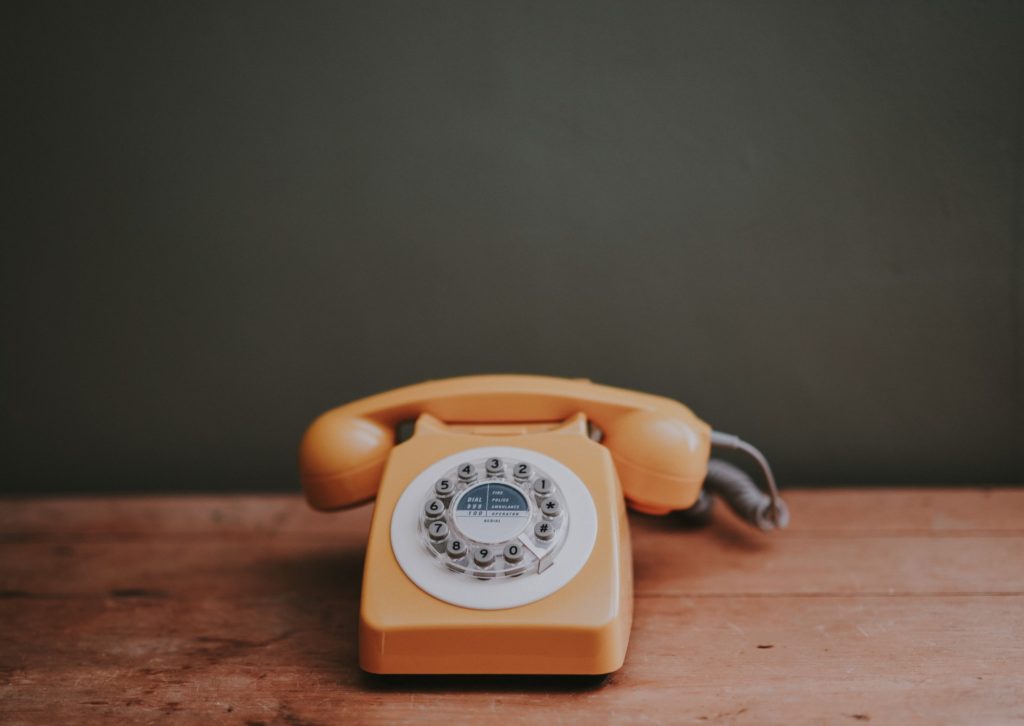When Health Calls, You Answer
May 4, 2022
When health calls, you answer.
My phone rang – again, mind you – in March 2020, shortly after my dad died. The suddenness of his death, coupled with my ongoing grappling with my mom‘s death just 7 1/2 years prior, shook me to the core. In contrast to my attempts to avoid grief altogether when my mom died, I knew the grief drill. That it would be important for me to lean into my feelings, rest, and take steps to care for myself. This was particularly important, given the load I carried both professionally and personally.

So beginning on the day my dad died, I made the decision that I wouldn’t rush back to work. At the time, I worked full-time at a local children’s hospital, having spearheaded an inpatient psychology program. While I enjoyed the programmatic aspects of my job, I didn’t particularly care for some of the internal structures and inevitable politics within the organization. In a nutshell, taking time away from work would’ve probably been in order even if my dad hadn’t died.
I traveled to Texas to spend a month with my brothers and focus on my dad‘s affairs. And all along, I was intentionally setting aside time to process my feelings and focus on what I needed in each moment.
Yet, none of that seemed to matter as my health waxed and waned. The first signal that I recognized was insomnia. I was familiar with sleepless nights, having experienced this for two years straight following my mom’s death. Then came a series of “random” rashes on my chest and upper portion of both arms. I quickly checked in with my doctor, who prescribed a steroid cream, and the symptoms went away.
When health calls, you answer.
The one symptom that didn’t go away, however, even after I returned to work after the month-long hiatus, was fatigue. Just imagine walking through life wearing a backpack filled with bricks. This is the best way I can describe the degree of weightiness I experienced for months following my dad‘s death. Each step more heavy and painful than the one before, I tried my best to proceed with as much energy as I could muster at the time.
The problem was that my job required me to ‘pound the pavement’ throughout the day. At any given moment, I might be called in to meet with a family, check on a patient, or attend an impromptu meeting with other staff members to address patient care. After attempting to ‘get back to normal,’ my body simply revolted. It became increasingly more difficult to maintain the physical stamina needed to do my job.
I knew I needed to do something to help myself, as well as have a conversation with my supervisor.
Friend, here are a few tools you might enlist to help yourself as you reintegrate back into the work environment after experiencing loss.
- Communicate with a supervisor or HR team regarding your struggles and opportunities for support. Enlisting the support from a superior can help you problem solve and even identify alternative ways to meet your work requirements.
- Seek support from a colleague. Having someone available to you throughout the workday can prove valuable. You may decide to schedule times to meet with them in order to decompress, or simply connect in order to express your thoughts and feelings as you grieve.
- Take frequent breaks throughout the day. With grief can come challenges with concentration and problems with emotional and physical stamina. Taking time to step away from your work can help you reset and obtain energy needed to get through the day.
- Break work-related tasks into smaller chunks. Grief can sometimes make it difficult to compartmentalize your thoughts. Attacking projects at work in a bite-sized fashion can prove helpful in addressing large work responsibilities. Doing so can also foster a sense of mastery and accomplishment, which is important in the face of uncontrollable loss.
- Adjust the work routine to accommodate your needs. The current work climate, namely remote opportunities, may be worth exploring as you readjust to the work environment. You might also explore options for shortened workdays or a later start time in order to help with emotional and physical stabilization.
Remember, when health calls, you answer.
Engaging support from others, as well as taking steps to help yourself, can ease the transition back into the work environment. Know there’s no shame in asking for help, communicating your needs, or taking time away from work in order to recalibrate.
Several months after my dad‘s death, I made the decision to quit my full-time job and pursue a solo practice and other entrepreneurial endeavors. Looking back, it was the best decision I could’ve made. And several medical appointments later, I learned that my body was significantly inflamed. The stress of cumulative grief, daily stressors, and life transitions caught up with me in summer 2020.
Friend, I challenge you to reflect on what your health may be telling you.
Whether subtle or glaring, grief definitely affords us signals that something’s gone awry. My greatest hope is that you take the time to answer health’s call and heed whatever warnings present themselves.
We have one beautiful life to live. And even as we grieve, we’re still called to live. Health is a significant part of that living.
As always, I welcome your thoughts.
XOXO,
M.
Head over to my Facebook page to chat more and interact beyond the blog: https://www.facebook.com/DrMekel. I’m also on Instagram too: https:www.instagram.com/drmekel
Learn more about managing your lifestyle, love, leadership, and loyalties to God, self, and others by clicking here: https://mekelharrisphd.com/.
Be the first to comment